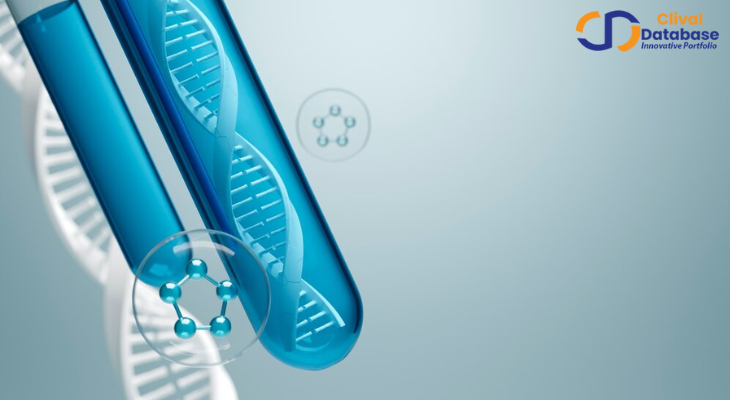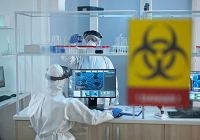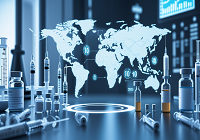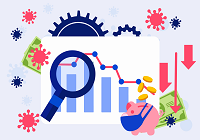What Are Biosimilars and Why Do We Need Them?
Introduction
In the sphere of the contemporary medicine, biologic drugs have become a new generation of therapy for multiple chronic and life threatening diseases. However, their capital intensive nature they are usually expensive to patients and in most cases inaccessible. This is where biosimilars come into play, hailing from across the globe and targeting a wide selection of the global population. Biosimilar is a biologic drug that claims to have significant similarity to the original biologic reference product but it is cheaper than the first one whilst it is not less safe or less effective. This blog post explains the concept of biosimilars, clinical trial to develop biosimilar, how they’re beneficial, and why they are important in today’s world.
Understanding Biologics and Biosimilars
Biologics are typically large & complex molecules originating from a biological system, particularly bacteria, yeast or mammalian cell. This class is employed to treat different diseases such as cancer, autoimmune diseases, and chronic inflammatory diseases. Monoclonal antibodies like insulin and growth hormones are common examples.
Biosimilars are, in contrast, demonstrated to be highly similar to an already approved biologic product referred to as the reference product. It’s different products but they have no significant differences in terms of safety, efficacy and quality. (Courtesy: FDA) This is to mean that a biosimilar will have the same performance as its reference biologic.
The Development and Approval Process
- Analytical Studies
- Characterization: The first stage in the process of developing biosimilar is to gain a knowledge of the basic reference biologic. This includes information of the structure, function and the biological activity of the reference product.
- Comparative Analysis: Employing modern techniques, the developers closely match the characteristics of the biosimilar with the reference product. This comprises determination of quality attributes which are important such as protein conformation, homogeneity, and strength.
- Preclinical Studies
- In Vitro Studies: These studies include the assessment of analytic similarity of the biosimilar against the reference product employing laboratory analysis of the biosimilar to determine its biological characteristics as well as efficacy.
- Animal Studies: Toxicity and pharmacokinetic characteristics of the biosimilar are performed by the help of animal models. These studies enable an estimation of the safety and effectiveness of the biosimilar in humans.
- Clinical Studies (phase 1 2 3 clinical trials)
- Phase 1 Trials: Phase I of human trials involves obtaining information on the absorption and metabolism of the biosimilar and the action of the biosimilar on the human body.
- Phase 2 Trials: In phase II trials, the study’s goal is to assess the bioequivalence, and biocompatibility as well as the most appropriate dosing strategy of the biosimilar in a small cohort of patients.
- Phase 3 Trials: These are extensive trials whereby a number of patients can range hundreds to thousands. The major aim is simply to demonstrate comparability in efficacy and safety of the biosimilar in the intended patient population.
Regulatory Review and Approval
- Submission of Data: All data gained during analytical, preclinical and clinical trials are compiled and send to such authorities as the FDA or the EMA.
- Regulatory Evaluation: The regulatory bodies, perform their analysis on the data submitted in an effort to confirm that the biosimilar is fit to be released to the market. This process may require other consultations and other inspections.
- Approval: Once the regulatory agency agrees with the proof then the biosimilar has the green light for entry into the market. This approval means that the biosimilar, can be used instead of the reference biologic.
Benefits of Biosimilars & Their Clinical Trials
- Increased Access to Treatment- It increases the availability of several biologic treatments to patients. Thus, through price differentiation, biosimilars enable many more citizens to have access to the drugs they require.
- Cost Savings: Biosimilars are usually priced lower than their reference biologics because their development costs considerably less. These are the type of cost reductions which can dramatically save the revenue of the healthcare system and the patients’ money.
- Encouraging Innovation: From the competition point of view, the opportunities offered in the form of biosimilar development can rejuvenate the pharma business.
Why Do We Need Biosimilars?
- Rising Healthcare Costs: From the competition point of view, the opportunities offered in the form of biosimilar development can rejuvenate the pharma business.
- Expanding Treatment Options: The nature of the disease is changing and chronic diseases are becoming more widespread, so people need effective treatment. Biosimilar products add more options to the existing treatments and give the doctors and patients’ better choices.
- Sustainability of Healthcare Systems: Given that the population ages and chronic diseases become more common, the future of healthcare systems is an issue. Biosimilars should therefore be embraced since they assist to maintain viability of healthcare systems through cost reduction.
Biosimilars in India
- Biosimilars have grown significantly in India in the last decade. Among nearly 98 biosimilar approved products in India, 50 are being actively marketed.
- The regulatory bodies in Indian biosimilars includes the Central Drugs Standard Control Organization (CDSCO), and the Department of Biotechnology (DBT).
- Several Indian pharmaceutical companies have ventured into the biosimilars market. Among these some of the key Indian companies are Biocon drugs, Dr. Reddy’s laboratories and Cipla.
- Challenges in Indian market- As seen, regulatory challenges, quality and safety, market considerations and finally, issues related to patents.
- Future Prospects- The future of biosimilars in India looks promising, with several factors contributing to their growth:
- Increasing Healthcare Access: Biosimilars play a crucial role in the expansion of biologic products’ availability of Biologic agents for patients in India and other developing nations.
- Global Market Expansion: Through the increase of operation efficiency, companies in India are extending their business beyond domestic markets.
- Government Support: The Indian government is focusing on the biotechnology industry, associated with biosimilar and has launched many schemes and policies.
- Technological Advancements: Improvements in biotechnology as well as manufacturing processes underlying biosimilars can make them nearer to the unique reference biologics.
Biosimilar Information By Databases
Being one of the leading database for clinical trials information, the Clival database helps by offering the necessary knowledge and data regarding biosimilar through reporting on clinical trials and drug development life cycle. It includes information about more than 500,000 clinical trials for biosimilars, which are highly similar biologic medical products to an already approved reference medicinal product.
Challenges and Considerations
- Regulatory Hurdles: The regulatory necessities to originate biosimilars can be somewhat tight and costly. But these regulations play crucial roles in protection of the biosimilars referencing biologicals along with their efficacy and safety.
- Market Acceptance: Physicians and patients’ willingness to use a reference biologic to a biosimilar is limited by issues related to the effectiveness and safety of biosimilars. These barriers can however be addressed through education and awareness.
- Patent Issues: The legal rights connected with patents of biologics and biosimilars might also be an issue if there are persisting controversies in this area. The problems outlined here can cause a delay in market entry of biosimilars.
Conclusion
Biosimilars are a revolutionary innovation in the biologic medicine industry because they are cheaper than the originator products thus making it easier for patients to access them. As a result, the driving role of biosimilars is attributed to increasing competition, decreasing cost, and broadening the range of the necessary treatment. With further development of the biosimilar market, the difficulties must be resolved and the proper and effective medications should be provided for patients who need them.
Frequently Asked Questions

Optimize Your trial insights with Clival Database.
Are you exhausted from the uncertainty of trial insights pricing? Clival Database ensures the clarity in the midst of the global scenario for clinical trials to you.Clival Database is one of the best databases that offers an outstanding number of clinical trial data in terms of 50,000+ molecules and from primary regulatory markets as well as new entrants like Indian and Chinese markets.
Elevate your trial success rate with the cutting-edge insights from Clival database.
Check it out today and make more informed sourcing decisions! Learn More!







